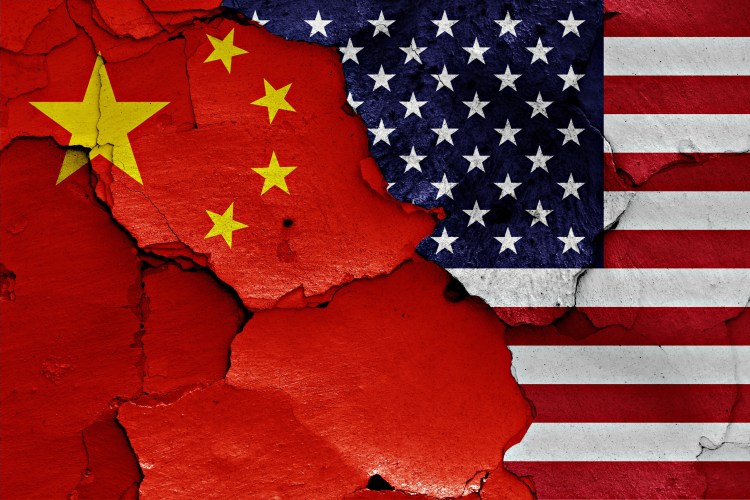Following last week’s announcements of steel and aluminum tariffs primarily directed at China and Canada, U.S. President Donald Trump today added that the “U.S. is acting swiftly on Intellectual Property theft,” suggesting imminent action on a long-unresolved issue with China’s government. As Trump’s latest proclamations coincide with recent U.S. government efforts to keep Chinese hardware out of U.S. next-generation 5G cellular networks, analysts now speculate that a “5G wireless trade war” could break out between the countries.
Last week, Trump announced that the U.S. will impose 25 and 10 percent tariffs on imported steel and aluminum, respectively, shielding historically declining U.S. producers from Chinese and Canadian rivals. While the tariffs were described at the time as stoking fears of a trade war with China, the impact on the Chinese economy was said to be comparatively small. Still, the Chinese government has threatened to retaliate with tariffs of its own.
Trump’s new focus on intellectual property theft is further fanning the flames of conflict, as it addresses a topic all but unique to China. For years, U.S. businesses have complained about Chinese misappropriation of trade secrets and copyrighted works, as well as flagrant violations of patent and trademark rights. While Chinese officials have sometimes intervened on behalf of aggrieved U.S. companies, Chinese IP thieves are notorious for continuing their operations at different locations or under different names, eluding prosecution.
On the other hand, Chinese companies have developed significant portfolios of intellectual property over the past decade, rebalancing what was once viewed as a one-sided relationship between an innovative U.S. and derivative China. Government-backed companies including Huawei and ZTE have been estimated to hold at least 10 percent of key 5G patents, making their cooperation essential to international 5G deployment efforts.
June 5th: The AI Audit in NYC
Join us next week in NYC to engage with top executive leaders, delving into strategies for auditing AI models to ensure fairness, optimal performance, and ethical compliance across diverse organizations. Secure your attendance for this exclusive invite-only event.
Thus the risk now is that Trump may go too far in the name of protectionism. Citing Jefferies & Co. analyst Edison Lee, a Barron’s article today notes that after U.S. efforts to keep Huawei out of 5G networks, and foreign chipmaker Broadcom’s hostile takeover attempt for U.S.-owned Qualcomm, the next step may be a direct conflict between the U.S. and Chinese governments over 5G. Lee suggests that “in the most extreme case of an all-out trade war,” the U.S. might attempt to stop Qualcomm from selling chips to China, leading China to withhold 5G-essential patents from U.S. companies and suppliers, thereby preventing 5G networks from being built.
Under Trump, the heads of the CIA, FBI, and NSA have implored both Congress and the Australian government to keep networking hardware from China’s Huawei and ZTE out of their 5G networks. According to Lee, the Trump Administration’s campaign has gone further than was previously known, including lobbying the South Korean government to avoid Chinese networking gear. BusinessKorea separately reported today that Korea’s Ministry of Science and ICT is working to help Korean companies “solve” the problem of reliance on Huawei 5G networking hardware, despite acknowledging the impressive performance of that hardware.
As a result of government intervention, leading Korean carriers SK Telecom and KT are now said to be “at a crossroad” regarding dealing with Huawei, as its 5G equipment is thought to offer a great combination of performance and pricing. U.S. carriers apparently do not have the option of dealing with Huawei at this stage, and if U.S.-China trade issues intensify, their options may narrow further.

